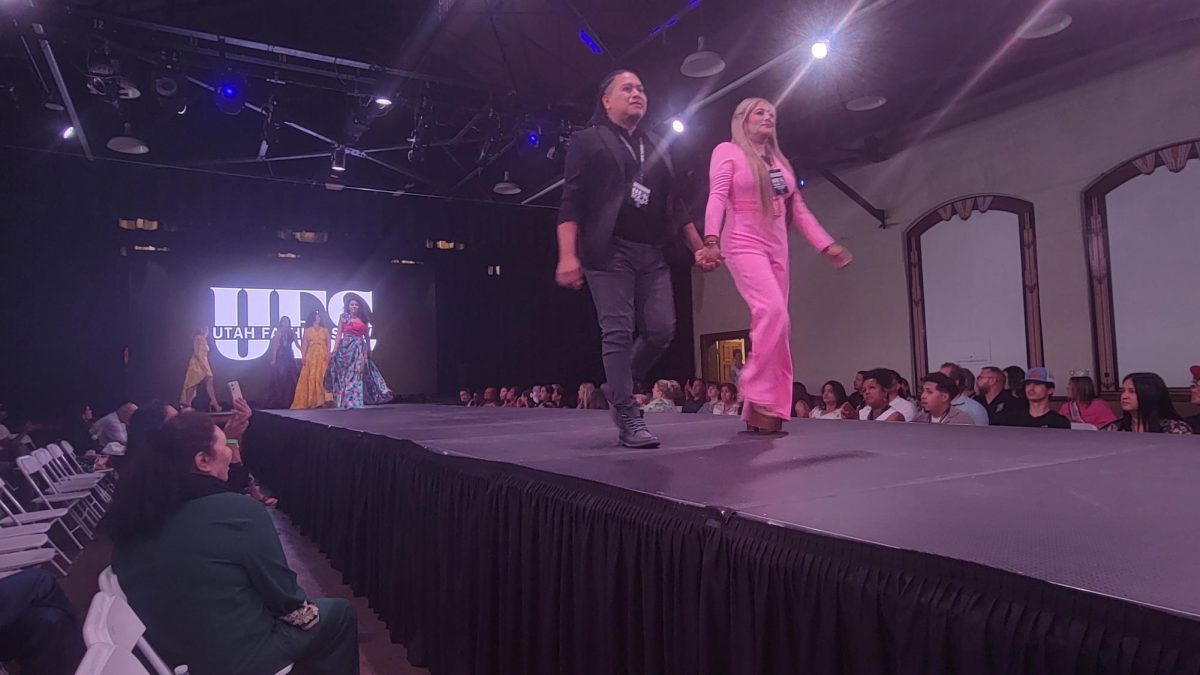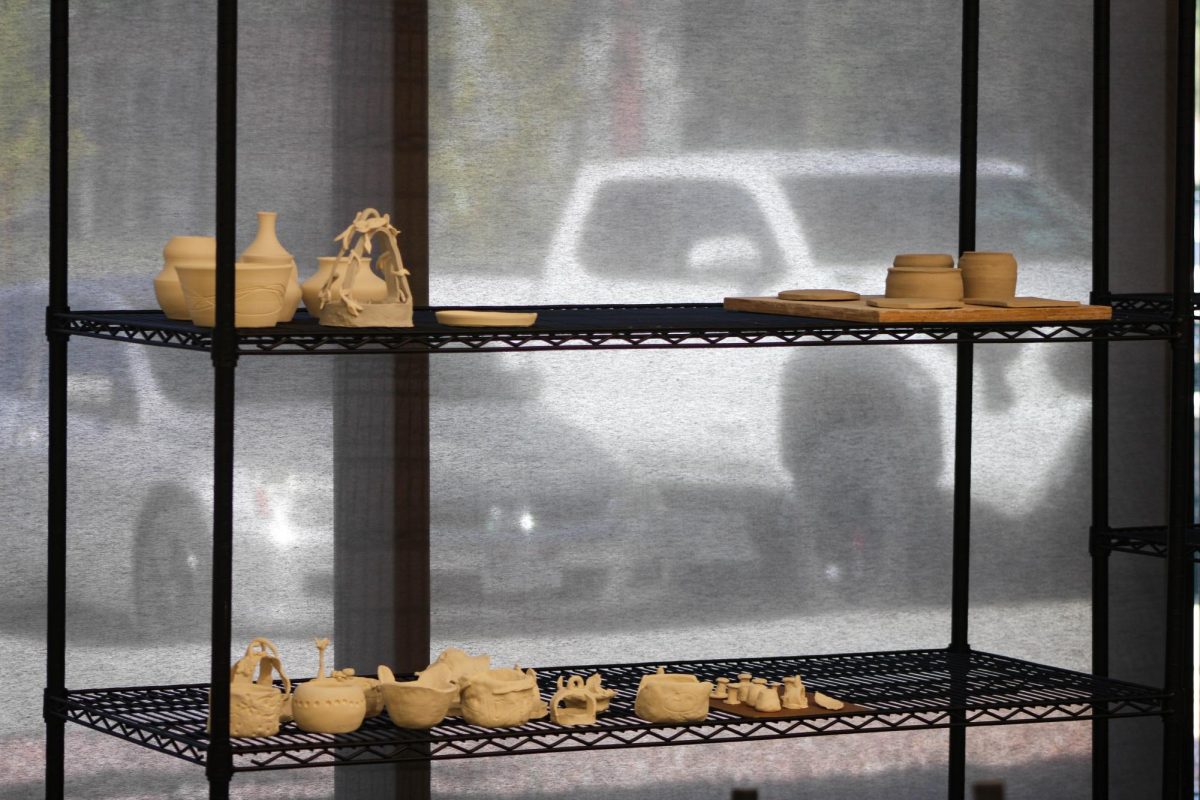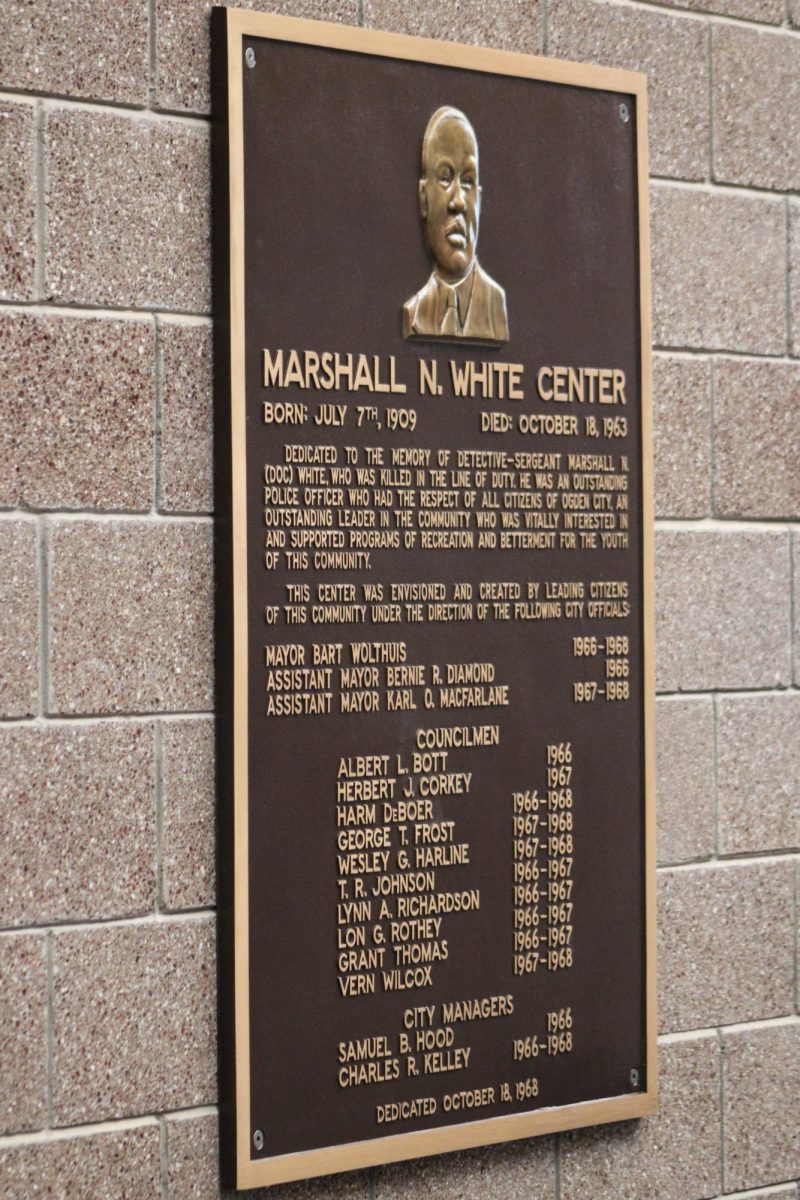For girls in developing countries, menstruating is a curse.
“Girls are using anything they can find to make something that will stop the flow or absorb the blood,” said Ann Lewis, co-director of the Utah County Days for Girls chapter. “They’re using things like cornhusks or tree bark; they are taking rags and wrapping sand or cow dung to make an absorbent pad.”

For those girls, menstruation means a week of isolation, missing school and exploitation.
Days for Girls, a nonprofit international organization, is working to change this by providing high-quality feminine hygiene kits and education to girls worldwide.
With the assistance of the Kaysville Rotary Club, the Davis Applied Technology College was turned into a factory Saturday. A group of 850 volunteers gathered to assemble the life-changing kits for the girls.
A Days for Girls reusable feminine hygiene kit contains one pair of panties, two shields, eight absorbent pads, one washcloth, one bar of soap, two Ziploc bags and a stylishly discreet bag to carry everything.
The kits are created with efficiency and circumstances in mind.
When the kits are delivered girls are taught about menstruation, hygiene and using the products.
“Because of blood, the girls think wounds, disease or AIDS and they think something is wrong,” Lewis said. “When we just explain what menstruation is, all of a sudden they understand what they’re bodies are doing and why it’s doing that.”

Each kit can last three years, which equates to about 180 days girls would now get to attend school.
Lewis explained this education is vital in fighting poverty and preventing young marriages and dangerous, amateur abortions.
Celeste Mergens, the founder of Days for Girls, came up with the idea in 2008 after working in a Kenyan orphanage. She asked what the girls were using when they had their period and was shocked when she heard of crude solutions.
Mergens first worked to supply a month’s worth of disposable feminine hygiene pads. However, she quickly realized this was not the solution when she saw latrines overflowing and a complete lack of proper disposal receptacles.
Soon after, Mergens came up with the washable pad systems that girls could reuse. From there, the design has been altered and perfected.
“Most girls and women in the world have no products,” Lewis said. “We are the exceptions. We are also blessed with the means to help others, and we can do something about it.”
When Mergens handed out the first kits, she had another disturbing realization. The male headmaster and teachers of the school had pads in their offices that they distributed in return for sexual favors with the girls.
“There are men in huts and shacks across the streets from high schools and middle schools who have products and exploit the girls every day,” Lewis said. “We can keep the girls from needing to go there in the first place when we put the kits directly into their hands.”
Utah is the most active Days for Girls chapter in the world, Lewis said. The Utah Valley chapter has produced over 10,000 kits in the last year.
Jacie Johnson, associate professor of interior design at Weber State University, spent her weekend sewing Days for Girls kits.
“Being in education, this rang true to my heart,” Johnson said. “It’s so important to empower these girls to have an education so that they can have equal opportunities in the world.”
Days for Girls has a goal to give a kit to every girl in need by 2022.
“This isn’t a one-time deal,” said Julie Treadwell, the North Davis area Days for Girls representative. “The need goes on.”
Treadwell encouraged anyone to get involved and lend a helping hand.
“Don’t hold back,” Treadwell said. “You can do it in your home. You can do it in a neighborhood; you can do it with a club. Just start and you’ll be grateful that you did.”
Visit www.daysforgirls.org to find volunteer opportunities with the organization.
“Everything you would want girls to have in this world is being thwarted because of menstrual periods,” Lewis said. “I hope you will find ways to be brave enough to say the words ‘feminine hygiene’ out loud.”








Julie Treadwell • Feb 1, 2015 at 10:54 pm
Just read this article by Rachel Badali. Wow. Well written. Rachel took a large amount of information and synthesized it into a concise article, hitting the main points and emphasizing the critical ones. Thanks so much for being willing to spotlight this, enabling others to learn about this need.